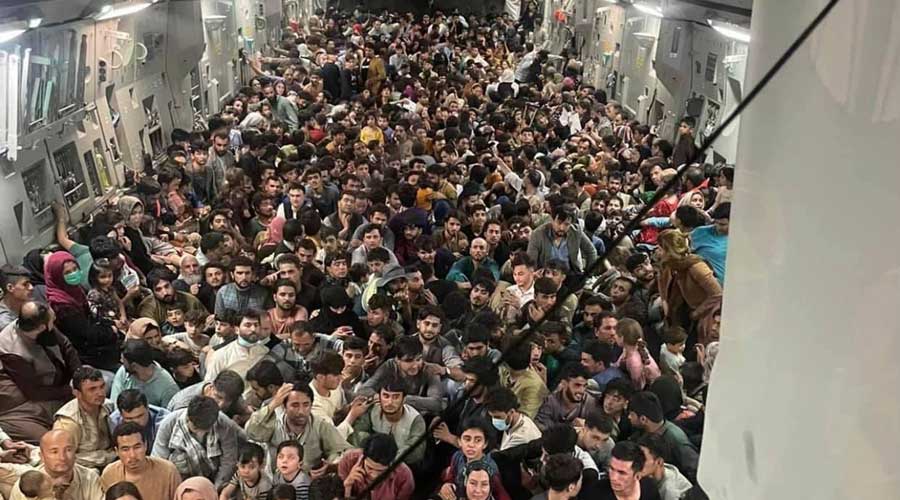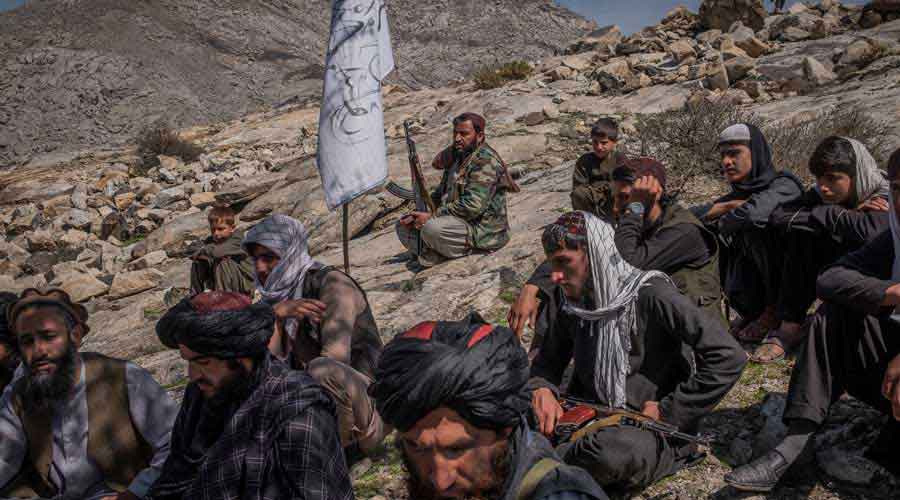The Taliban on Tuesday sought to present themselves to the world as responsible stewards of Afghanistan.
Despite assurances of safe passage, the Taliban are not only known to operate with brutality, but also have a dismal history of managing a vast nation largely dependent on foreign aid.
The Taliban have told the US they will provide safe passage for civilians to reach the Kabul airport, US national security adviser Jake Sullivan said. The US believes the Kabul evacuation can go until August 31, Sullivan added.
Taliban leaders took to Twitter, appeared on international cable networks and held a news conference — all to provide assurances that they would not engage in systemic retribution and to offer vague reassurances to women.
Zabihullah Mujahid, the movement’s main spokesman, said through a translator that the rights of women would be respected and they would be allowed to work and study and be active in society “but within the framework of Islam”.
“We don’t want to repeat any conflict, any war again…. We don’t want any internal enemies and any external enemies,” he added.
Promising an amnesty for former members of the Afghan army and police, Mujahid said translators and contractors who worked with international forces since 2001 would not be harmed.
The chairman of the Taliban’s military commission, Mullah Yaqoub, iterated orders that fighters in Kabul should not enter people’s homes or seize property.
He coupled that with a warning, saying that the Taliban would be collecting weapons and government property in an organised manner and that looting state property was a betrayal of the country. “If anyone is caught, they will be dealt with,” he said.
There were other signals that the Taliban are now seeking to move from being insurgents to the new legal authority in the nation.
Mullah Baradar, the chief of the Taliban’s political office, arrived in the southern city of Kandahar on Tuesday, returning to Afghanistan for what is believed to be the first time in a decade.
A Taliban delegation also was in Kabul on Tuesday for discussions with political leaders to negotiate the formation of an interim government. More senior Taliban leaders are scheduled to arrive in Kabul on Wednesday and will most likely announce a new government.
Still, there were also ominous signs that the Taliban’s promises did not match the situation on the ground.
Taliban fighters spread out across the streets of Kabul. Some visited the homes of government officials, confiscating possessions and vehicles.
In some areas of Afghanistan, women have been told not to leave home without being accompanied by a male relative, and girls’ schools have been closed.
The UN children’s organisation, Unicef, reported getting mixed messages on education for girls: in some areas, local Taliban authorities said they were awaiting guidance from leaders, and in other areas they said they wanted schools for girls and for boys up and running.












